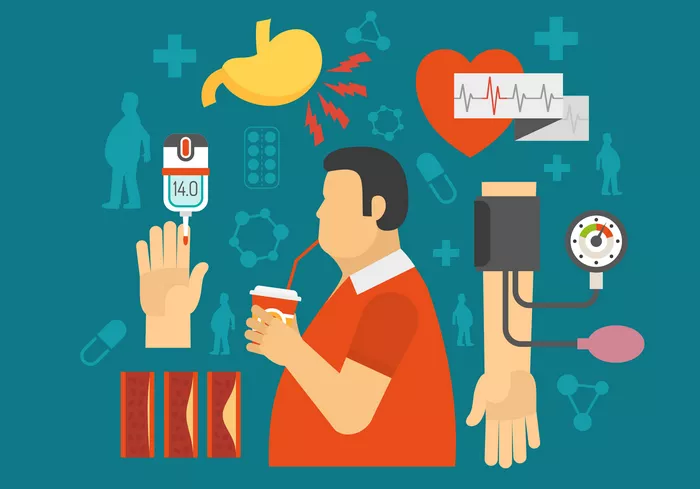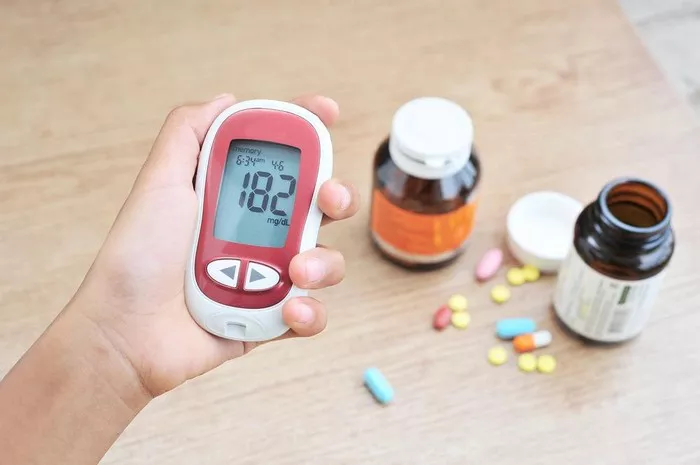Hypoglycemia, characterized by low blood sugar levels, is a significant concern for individuals managing diabetes. While hypoglycemia is commonly associated with fasting or excessive insulin use, it can also occur after eating, a phenomenon known as postprandial hypoglycemia. Understanding the underlying mechanisms and factors contributing to postprandial hypoglycemia is crucial for effective management and prevention. In this article, we delve into the causes, symptoms, and management strategies for postprandial hypoglycemia.
What is Postprandial Hypoglycemia?
Postprandial hypoglycemia refers to low blood sugar levels occurring after a meal, typically within 4 hours of eating. While it shares similarities with reactive hypoglycemia, which occurs in individuals without diabetes, postprandial hypoglycemia specifically affects those with diabetes or impaired glucose tolerance.
In healthy individuals, the body maintains blood sugar levels within a narrow range through a complex interplay of hormones, primarily insulin and glucagon. After a meal, blood sugar levels rise, triggering the release of insulin from the pancreas to facilitate the uptake of glucose into cells for energy production or storage. However, in individuals with diabetes or impaired glucose tolerance, this regulatory mechanism may malfunction, leading to excessive insulin secretion and subsequent hypoglycemia.
Causes of Postprandial Hypoglycemia
Several factors contribute to the development of postprandial hypoglycemia in individuals with diabetes:
- Excessive Insulin Secretion: One of the primary causes of postprandial hypoglycemia is an exaggerated insulin response to carbohydrate ingestion. In individuals with impaired glucose tolerance or insulin resistance, the pancreas may overcompensate by releasing an excessive amount of insulin, leading to a rapid decline in blood sugar levels.
- Delayed Gastric Emptying: Gastroparesis, a condition characterized by delayed gastric emptying, is common in individuals with diabetes. When food remains in the stomach for an extended period, it delays the absorption of glucose into the bloodstream, leading to a delayed rise in blood sugar levels followed by a subsequent drop, resulting in hypoglycemia.
- Incretin Effect: Incretin hormones, such as glucagon-like peptide 1 (GLP-1) and glucose-dependent insulinotropic polypeptide (GIP), play a crucial role in regulating postprandial glucose levels. However, abnormalities in incretin hormone secretion or action, as seen in some individuals with diabetes, can contribute to postprandial hypoglycemia.
- Medications: Certain diabetes medications, such as insulin secretagogues (e.g., sulfonylureas, meglitinides) and insulin, increase the risk of postprandial hypoglycemia by stimulating insulin secretion or enhancing insulin sensitivity. Additionally, medications used to treat other conditions, such as beta-blockers or alcohol, can interfere with the body’s ability to maintain stable blood sugar levels.
- Altered Counterregulatory Response: In individuals with longstanding diabetes, repeated episodes of hypoglycemia can impair the body’s ability to mount an appropriate counterregulatory response to low blood sugar levels. This blunted response increases the risk of severe hypoglycemia, particularly after meals.
Symptoms of Postprandial Hypoglycemia
The symptoms of postprandial hypoglycemia can vary in severity and may include:
- Sweating
- Trembling
- Palpitations
- Dizziness or lightheadedness
- Confusion
- Irritability or mood changes
- Hunger
- Headache
- Weakness or fatigue
- Blurred vision
In severe cases, postprandial hypoglycemia can lead to loss of consciousness, seizures, or coma, necessitating prompt medical intervention.
Management Strategies for Postprandial Hypoglycemia
Effectively managing postprandial hypoglycemia requires a multifaceted approach tailored to individual needs. Key strategies include:
- Dietary Modifications: Adopting a balanced meal plan that emphasizes whole grains, lean proteins, healthy fats, and high-fiber foods can help stabilize blood sugar levels and prevent postprandial hypoglycemia. Additionally, spacing meals evenly throughout the day and avoiding large carbohydrate-rich meals can minimize fluctuations in blood sugar levels.
- Medication Adjustments: For individuals taking diabetes medications associated with postprandial hypoglycemia, such as insulin secretagogues or insulin, dosage adjustments may be necessary to reduce the risk of hypoglycemia. Healthcare providers should carefully monitor blood sugar levels and medication regimens to optimize glycemic control while minimizing the risk of adverse events.
- Regular Physical Activity: Engaging in regular physical activity can improve insulin sensitivity and glucose metabolism, thereby reducing the risk of postprandial hypoglycemia. Aim for at least 150 minutes of moderate-intensity aerobic exercise per week, supplemented with resistance training to enhance muscle strength and glycemic control.
- Monitoring Blood Sugar Levels: Regular self-monitoring of blood glucose levels is essential for identifying patterns of postprandial hypoglycemia and guiding treatment decisions. Individuals should be educated on how to interpret blood glucose readings and instructed to seek medical attention if hypoglycemia occurs.
- Glucose Management Strategies: In the event of hypoglycemia, prompt administration of glucose-containing foods or beverages, such as fruit juice, glucose tablets, or hard candies, can help raise blood sugar levels quickly. Severe hypoglycemia requiring assistance from others may necessitate the use of glucagon emergency kits.
- Medical Evaluation and Treatment: Individuals experiencing recurrent or severe postprandial hypoglycemia should undergo a comprehensive medical evaluation to identify underlying causes and contributing factors. Treatment may include addressing comorbid conditions, adjusting medication regimens, or implementing advanced therapies such as continuous glucose monitoring or insulin pump therapy.
Conclusion
Postprandial hypoglycemia poses a significant challenge for individuals with diabetes, affecting their quality of life and posing potential safety risks. By understanding the underlying mechanisms and contributing factors, healthcare providers can implement targeted interventions to effectively manage and prevent postprandial hypoglycemia. Through a combination of dietary modifications, medication adjustments, regular physical activity, and glucose management strategies, individuals can achieve optimal glycemic control while minimizing the risk of hypoglycemic events. Ongoing monitoring and collaboration between healthcare providers and patients are essential for successful management of postprandial hypoglycemia and overall diabetes care.
Related topics:
Can Too Much Exercise Cause Hypoglycemia?



























